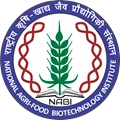
Union Minister of State for Science and Technology, Dr Jitendra Singh, emphasized the significance of biotech startups for India's future economy. Speaking at a discussion meeting for fostering the Biomanufacturing Initiative of the Department of Biotechnology (DBT) in New Delhi, Dr Singh highlighted the substantial growth of biotech startups in recent years.
According to Dr Singh, the number of biotech startups in India has risen from around 50 eight to nine years ago to approximately 6,000 today. Despite this remarkable growth, he believes that more startups are needed to fully tap into the potential of the biotech sector.
Dr Singh credited Prime Minister Narendra Modi with awakening India to the merits and vast potential of biotechnology. He noted that India's bioeconomy, valued at around USD8 billion in 2014, has grown to USD100 billion under PM Modi's leadership. The government aims to further increase this figure to USD150 billion by 2025. Dr Singh also highlighted India's ranking as the 12th largest bioeconomy in the world, the third in the Asia Pacific region, and the leader in vaccine production.
Biotechnology, according to the Minister, has the potential to become a significant driver of global trade. India possesses abundant bioresources, particularly in the biodiverse Himalayan region and its extensive coastline stretching over 7,500 kilometers. Dr Singh also mentioned the Samudrayaan project, launched last year, which aims to explore the biodiversity beneath the seas.
According to Dr Singh, the number of biotech startups in India has risen from around 50 eight to nine years ago to approximately 6,000 today. Despite this remarkable growth, he believes that more startups are needed to fully tap into the potential of the biotech sector.
Dr Singh credited Prime Minister Narendra Modi with awakening India to the merits and vast potential of biotechnology. He noted that India's bioeconomy, valued at around USD8 billion in 2014, has grown to USD100 billion under PM Modi's leadership. The government aims to further increase this figure to USD150 billion by 2025. Dr Singh also highlighted India's ranking as the 12th largest bioeconomy in the world, the third in the Asia Pacific region, and the leader in vaccine production.
Biotechnology, according to the Minister, has the potential to become a significant driver of global trade. India possesses abundant bioresources, particularly in the biodiverse Himalayan region and its extensive coastline stretching over 7,500 kilometers. Dr Singh also mentioned the Samudrayaan project, launched last year, which aims to explore the biodiversity beneath the seas.
Dr Singh pointed out that biotechnology has emerged as a popular career choice among young people. He cited a recent survey of Class 12 students in Delhi, which ranked biotechnology as the fourth or fifth preferred stream. This growing interest among the youth is attributed to the increased awareness of tools like synthetic technology, genome editing, microbial bioresources, and metabolic engineering, especially in disease management.
The Minister highlighted the unique nature of biotechnology startups, combining biology and manufacturing. These startups are involved in the processing of living systems, such as microorganisms and self-cultures, and can serve as instruments of manufacturing.
Additionally, Dr Singh emphasized the environmental benefits of biotechnology, stating that it offers a cleaner and greener milieu that is more compatible with overall well-being. Over time, biotechnology also generates lucrative livelihood opportunities and serves as an alternative to petrochemical-based manufacturing. Bio-based products like food additives, bioengineering ties, and animal feed products are some of the outcomes of biotechnology.
To commemorate World Bioproduct Day, Dr Singh launched the DBT's social media campaign called #IChooseLiFE, which aims to promote biomanufacturing and the use of bioproducts.
















